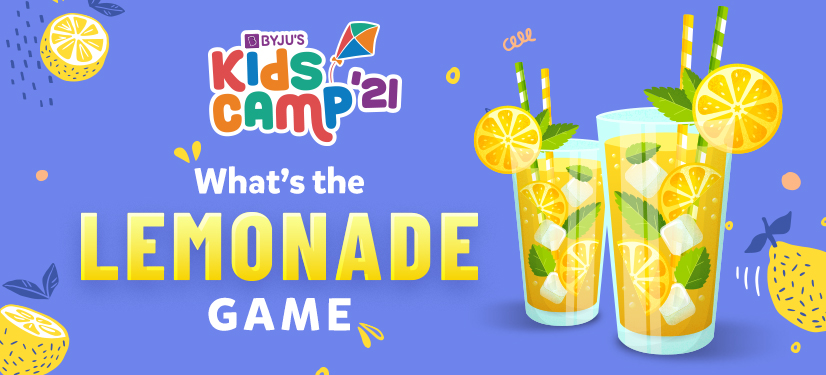Help Your Child Practise Early Math Concepts Through The Lemonade Game
“We’re all stories, in the end.”
― Steven Moffat
Practice makes us perfect. Children need to practise basic mathematical skills such as counting and estimation to get better in that topic. However, getting them to practise math during the summer holidays can be quite challenging for parents. That is why, finding new and fun ways of practising these skills becomes critical.
Today, we will talk about an exciting way to practise basic early mathematical skills through an imaginary culinary game. Intrigued much?
The Lemonade Game
Requirements: Oodles of imagination!
Instructions For Parents:
- Try this activity before nap time
- Tell the child that you both are going to make lemonade by using imagination.
- Ask the child to close their eyes before starting this exercise
- Feel free to improvise once you get the hang of it
The Lemonade Activity Sample Script:
Here is a sample script for the lemonade game. You can add different mathematical concepts in this, such as counting, directions, and estimation, depending on the age and developmental level of the child.
Conversation:
- Parent: Close your eyes, lie down, and let’s get started!
- Parent: Let’s make lemonade since summer’s here, and it is getting very hot. How many glasses of lemonade shall we make?
- Child: (Answers) Three glasses. One for you. One for my sister and one for me.
- Parent: For one glass of lemonade, we need one lemon. Let’s go get them. Where can we find lemons in the house? And how many lemons do we need?
- Child: (Answers) In the fridge! Three lemons. One for each glass.
- Parent: Great! The refrigerator is in the kitchen. It takes me twenty steps to get to the kitchen, how many steps do you think it will take for you? (Estimation)
- Child: (Answers) Thirty steps
- Parent: Alright! Let’s skip count by 2 till we reach thirty in our mind and get the lemons.
- Child & Parent: (Answers) 2, 4, 6, 8, etc.
- Parent: Awesome! Now we have lemons. What else do we need? We need glasses, water, and sugar. Let’s go to the kitchen again and get it. Do you think we can count backwards from thirty while hopping where we are?
- Child: (Answers. Acting like the child is hopping) Yes! 30, 29, 28, 27, etc.
- Parent: Awesome! Now we have everything we need to make a lemonade. Let’s go and get utensils now. Which one should I get? Small, medium or large?
- Child: A medium-sized utensil.
- Parent: Let’s get spoons and a jar of water as well. (You can add skip counting or tables here, if you want. )
- Parent: Perfect. Let’s squeeze the juice from the lemons. Can you squeeze each lemon for ten times to get all the juice out?
- Child: (Answers) Yes! 1, 2, 3,… etc.
- Parent: Good job! Now, let’s add sugar. For one lemon we need two teaspoons of sugar. How much sugar do we need for three lemons?
- Child: (Answers and adds sugar) Six teaspoons of sugar.
- Parent: Awesome. Now let us stir the mixture till the sugar is dissolved. Can we stir the mixture five times clockwise and the other five anti-clockwise?
- Child: Yes. (Happily stirs the imaginary mixture)
- Parent: Now, in the last step, let’s add water. And voilà. The lemonade is ready. Let’s drink it.
- Child & Parent: Drink the imaginary lemonade and take a nap.
Most young children love this imaginary cooking game. Parents can encourage their children to make different things every day such as chocolate cake, banana bread, jalebi, ice cream, or any other favourite dishes. It fosters creativity and fuels their imagination. Parents should also include different mathematical concepts to practice throughout the activity. Ask the child to hop, jump, or skip just to add some fun element.
Do you like this activity? Will you try it at home? Let us know about your experience in the comments below.
Also read,
- Fun Things to Do as a Family to Make Lasting Memories
- Here’s How To Talk To Your Child About Money Matters
- Financial Literacy for Children: Episode 4 – What are Savings?

